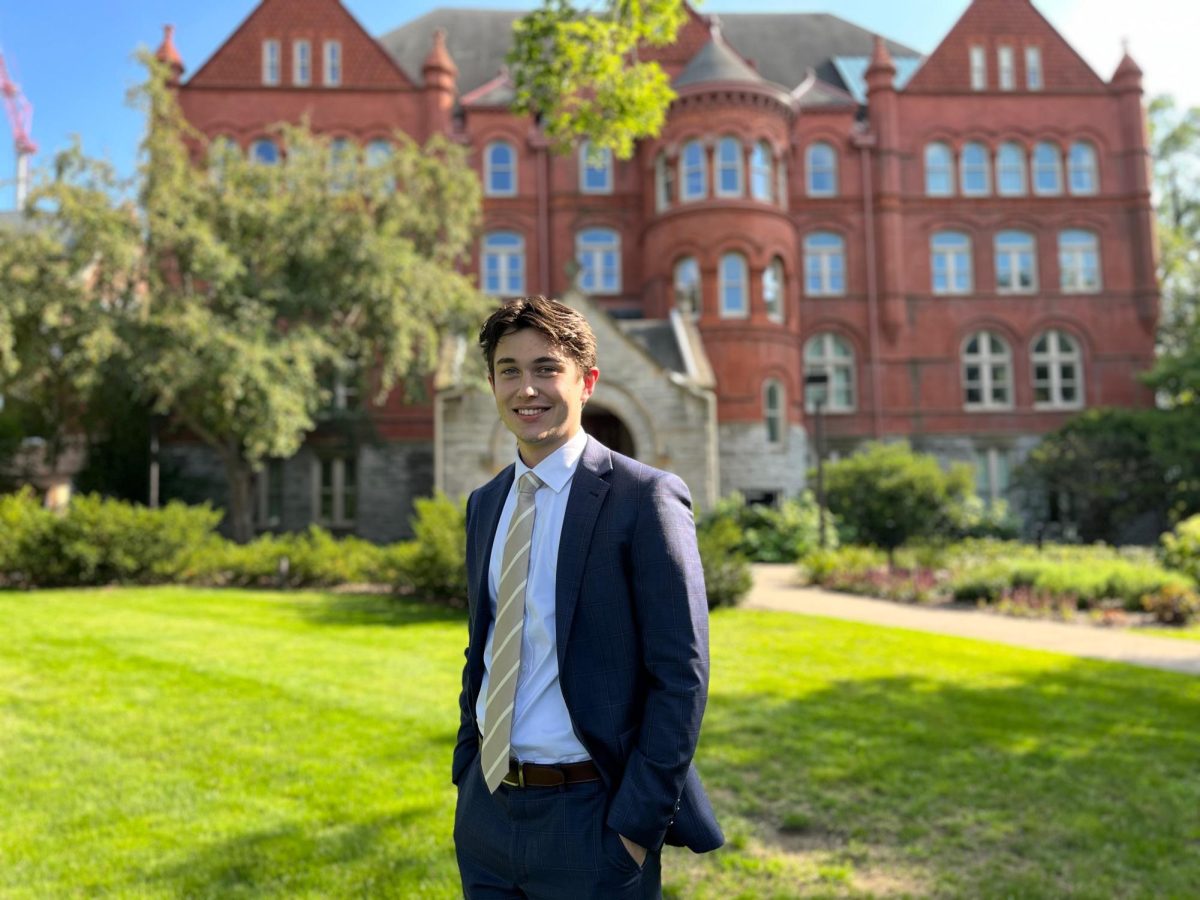Last Tuesday, a small gathering of faculty and students came together for a forum on Macalester’s sexual assault response hosted by MCSG. What was supposed to be a two-part event with a panel and Q & A and a series of smaller topic oriented discussions became solely a panel discussion because of the extent of the topic and the audience’s questions.
The panel began with an introduction by Department of Multicultural Life Counselor and moderator, Sedric McClure. He began by introducing each panel member: Dean of Students Jim Hoppe, Assistant Dean of Students Robin Hart Ruthenbeck and Doty and Turck Residence Hall Director Amanda-Rae Barboza. Each member, including McClure, holds a position on the Macalester College Harassment Committee (MCHC) or the Sexual Assault Support Team along with their administrative positions.
McClure concluded by emphasizing the importance of the forum not only to the health of the campus but to the members of the panel, MCHC and the Support Team.
“We strive here at Macalester to build this community, and if you will, safe spaces on the campus, but you know sometimes that always doesn’t happen,” McClure said. “We know that anytime someone experiences some kind of sexual assault or harassment on campus, it is actually the antithesis of community. We take our role very seriously trying to hear some of the circumstances that come up around this issue.”
Following McClure’s introduction, Hoppe reiterated the importance of the forum setting. Hoppe said that the last time policies had undergone a major reform was in 2007 and 2008 after “the energy of a forum much like this.”
In talking about the differences between the current and prior forums, Hoppe mentioned the changed political environment on the subject of sexual assault on college campuses.
“A lot has changed since [the 2007 forum], you know the federal government has given us a lot more direction and mandate to think about what our policy must be. That was different in 2008,” he said. “There’s some places where we have a lot of room to think about what might be best suited for this campus, but there’s other things that are going to be mandated to us that the federal government is now saying, ‘this is the way this process must now be handled.’”
Hoppe’s talk explained the role of MCHC. He discussed each step of the response process from the occurrence of sexual violence, or other forms of harassment, and to its end in an informal or formal resolution. This process was where much of the discussion of reform was centered throughout the forum.
Hoppe mentioned that Macalester is removing the option of an informal resolution due to negative response from previous cases and new government mandates. He also mentioned that MCHC was in discussions with two local law firms about using their services as investigators for complaints, replacing the current system of using faculty and staff as investigators.
The discussion then moved to prevention methods and programs, which is Barboza’s specialty. She began by describing Macalester’s prevention programs as a result of its dedication to more than just the college’s well being.
“What I’ve seen Macalester do is think beyond compliance and what is not going to get us sued, but really taking care and thinking beyond the compliance and really about the safety and care of our students,” Barboza said.
Barboza is involved in planning and applying Macalester’s “comprehensive violence prevention model.” Built on four pillars of policy and consent, sexual health and relationships, bystander intervention and cultural analysis, the programing attempts to address “the cognitive, affective, and behavioral issues for those affected by violence and violence prevention,” Barboza said.
She explained that for programs like the speaker series Consent is Mac and This Matters at Mac, improvement is required in the form of more diverse student involvement.
In her portion of the panel, Hart Ruthenbeck discussed her role as support team coordinator and the team’s role in general.
She said that, first and foremost, support members have a responsibility to listen. After that, their role is often to be an understanding presence, even after the case is closed.
“Just because a case has reached closure doesn’t mean that [a] person has closure,” Hart Ruthenbeck said.
Her comments closed the panel, but not the discussion. Audience members questioned the efficiency and true support of the current systems.
One student, after briefly describing how their own sexual assault case had been handled at Macalester, challenged the panelists to use stronger sanctions against convicted respondents.
Others asked if the panelists felt Macalester lived up to it’s “zero tolerance” values when perpetrators were allowed to graduate with their victims and those participating in prevention programs like Consent is Mac didn’t live by the slogan.
Questions also focused on Macalester’s future response and prevention programs. There was concern about how the introduction of a law firm would impact the resolutions of reports. Some students were concerned that the legal system’s tolerance of sexual violence was much higher than Macalester’s and that investigations would be inconsistent with the campus’ values.
While the panelists attempted to provide as many answers as they could, it was clear that the discussion was not over. The event concluded with the decision to continue discussion of the panel topics, as well as small group discussions of resource availability, reporting, prevention and Kagins and other social events at a later date to be decided by MCSG.






Samantha James • Sep 10, 2019 at 2:45 pm
Hi there! Quick question that’s entirely off topic. Do you know how to make your site mobile friendly? My site looks weird when viewing from my iphone4. I’m trying to find a theme or plugin that might be able to fix this issue. If you have any recommendations, please share. Thank you!
Colin Murray • Sep 8, 2019 at 2:03 am
All right you are accurate, in fact PHP is a open source and its help we can obtain free from any discussion board or web page as it happens at this place at this website.
Aerie • Aug 1, 2019 at 8:06 am
That is clearly a good hint particularly to those new to the blogosphere. Brief but quite accurate information Thank you for sharing this one. A must read post!
FashionNovacoupon • Aug 1, 2019 at 1:08 am
Way cold! Some very valid points! I love you composing this write-up plus the rest of the website is great.
longwood gardenCoupon • Jul 30, 2019 at 4:13 pm
You generated lots of decent tips there. I looked over the internet for that difficulty and found many people will get in conjunction with with all your internet site.
NoodlesCompany Coupons • Jul 30, 2019 at 12:51 pm
Carries anyone obtained any genuine success through HARO? It just feels that most of the reporters attached to the organization are from america which you do not have much anticipations from other nations particularly within South Asia. Brian, can you immediate me personally to the full circumstance studies? Thanks.
PeterPiper Pizza • Jul 30, 2019 at 5:47 am
excellent post mate, even though there is a concern along with backlinking about ecommerce.
SkyZone Coupons 2019 • Jul 29, 2019 at 9:30 pm
outstanding post mate, even though there is a good presssing issue with backlinking when it comes to web commerce.